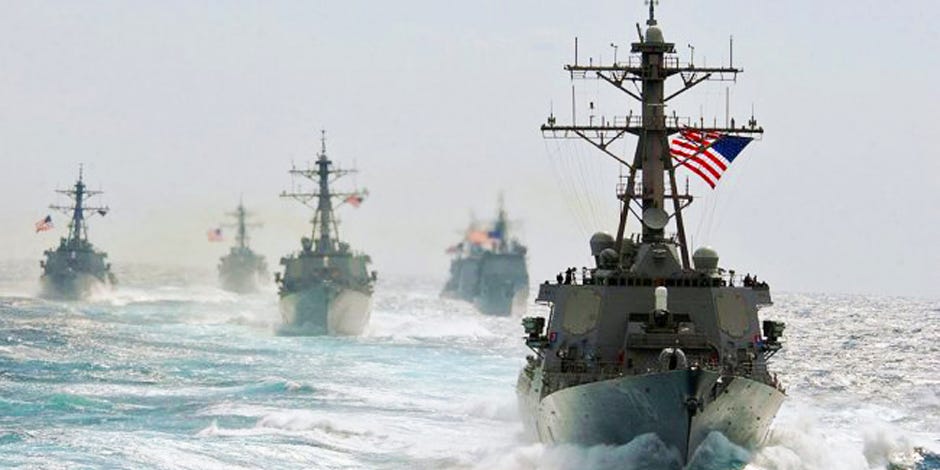US action to increase its military presence in East Asia or the region known as the Indo-Pacific can be analyzed on two levels; At the macro level, due to changes in US military strategy since 2012 during the presidency of former President Barack Obama, more than 60 percent of the US Navy’s fleet has been deployed in the East Asian region; So from that year onwards, the Americans gradually took the initiative to make a significant part of their naval capabilities in East Asia, especially in areas such as Guam, the South China Sea and surrounding areas, and around Japan, South Korea, as well as countries known as Asian tigers.
The goal of the US effort is to make the Pentagon’s strategists change the nature of the threats in the 21st century, which will shift from the West Asian region or the Middle East to East Asia. Given that China is projected to become the world’s number one economic power by 2030, the Chinese are increasing their military and commercial capabilities as they expand their economic and trade power, and Beijing after Washington has the second largest military budget in the world.
From the Pentagon strategists’ point of view, countering China’s military threats, especially in the South China Sea in the Taiwan Strait and in Asia and the Pacific in general, is a top priority, given that key US allies namely South Korea and Japan or Singapore and Malaysia are located in this region. Therefore, their protection specially the protection of Taiwan as a separate part of China (of course, Beijing wants its reunification with its homeland) is a high priority for the Americans.
But at a lower level, developments in recent years in the South China Sea, namely China’s efforts to increase its maritime territory by building artificial islands and claiming ownership of some islands in the sea that have caused some controversy with neighboring countries such as the Philippines, Vietnam, Malaysia and the like has led the United States, along with its allies Australia and Britain, to increase its military presence in the South China Sea.
The aim is to actually resist China’s maritime claims, as well as its efforts to establish a warning zone or air patrol over the South China Sea, so that Beijing will not be able to claim dominance in these areas. This has led to frequent skirmishes between the US, Australian and British warships in the South China Sea.
Currently, the Americans have deployed three aircraft carriers in the area, especially in the Taiwan Strait and surrounding areas. Washington’s goal is to actively block China’s military ambitions and its efforts to expand its naval and air dominance, as well as what the United States calls a serious Chinese threat to Taiwan. This inevitably raises tensions between China and the United States in the region, and the trend is expected to intensify in the near future.
Given that the United States, in addition to trade and economic pressures, has now adopted a policy of direct interference in China’s internal affairs, such as the referral of the law on sanctioning Chinese officials because of what it calls human rights abuses in the Xinjiang region. Meantime, considering direct intervention by the Congress and the White House, as well as US allies, especially London in Beijing’s internal affairs in the Hong Kong area, there seems the process of confrontation between China and the United States will be escalated not only in the coming months but also in the years to come.










0 Comments